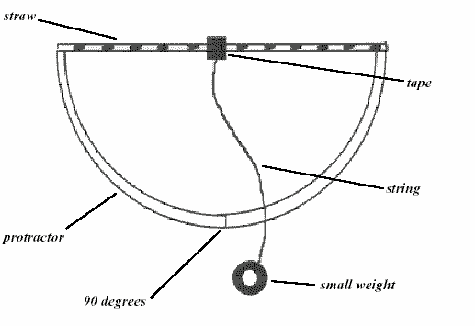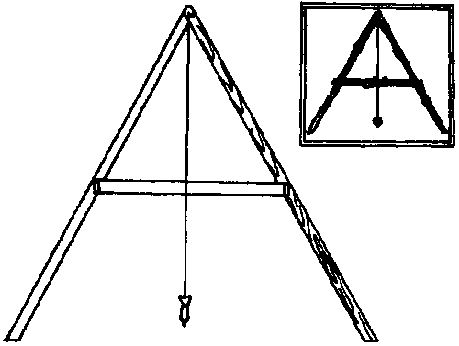You can measure slope by making use of gravity. Find a protractor for measuring angles. Attach a straw across the straight edge of the protractor. From the very middle of the straight edge, attach a string with a small weight on the end. To measure slope, ask a friend to help. Identify a point on your friend’s body which is at your eye level (eyes, nose, chin, neck-line, etc.) or, instead of a friend you can use a stick marked with your eye level. Have your friend stand directly down hill from you (in the direction water would flow), several meters away. Hold the protractor and look through the straw, sighting on the eye level place on your friend’s body. Let the string hang freely and then pin it against the protractor with your finger and observe the reading where the string crosses. The difference in degrees between the reading you observe and 90 degrees is the slope of the land in degrees. To convert to percent slope, take the tangent of the angle you have observed and multiply by 100.
To mark contours, you can use a device as shown below. Make it using large pieces of wood, for example, 2 meters long for the two legs. Tie some kind of weight at the end of the string. To mark the level line, place the device upright on the ground (in a relatively flat area) and mark where the string crosses the middle bar. Then switch the legs (placing each leg in the exact position where the other leg was previously) and again mark where the string crosses the middle bar. Take the point exactly half way between these two points. Now you know that when the string touches this point, the two legs are level. You can walk the device along the contour, swinging from one leg to the other and always making sure that when you place the next leg down, the string touches the level line. Mark the contour line as you go. 
/articles/how-measure-slope-and-mark-contours